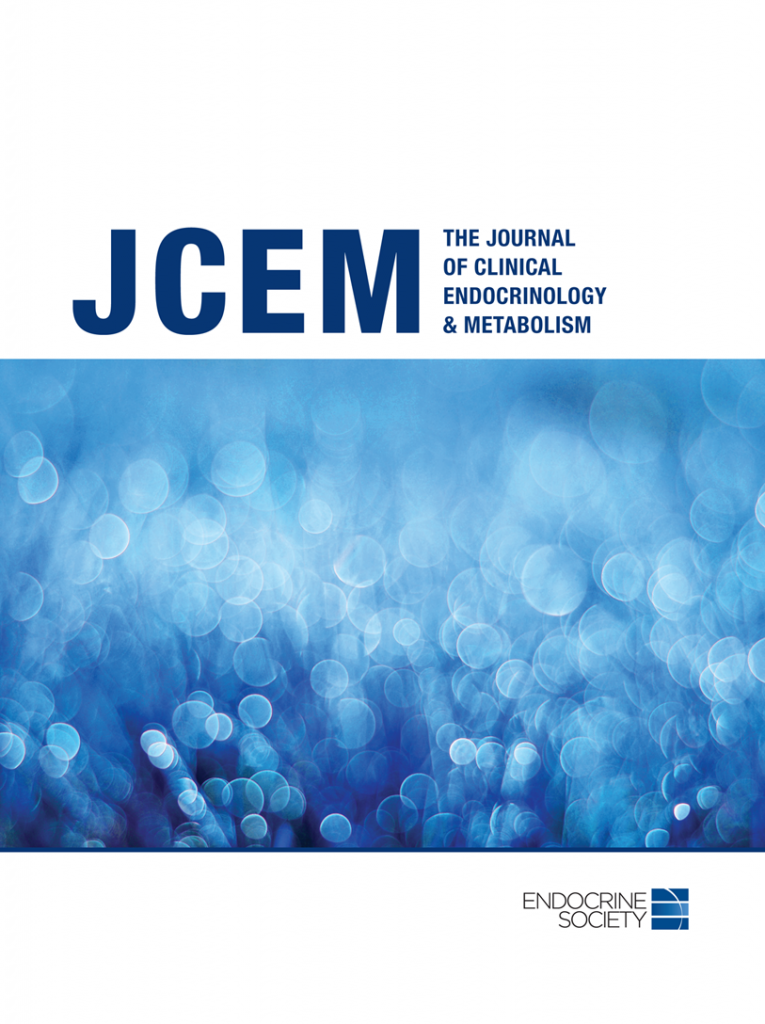
For the sixth year running, Endocrine News talks to editors from Endocrine Society publications to get the scoop on the top endocrine discoveries of 2020. In this fourth installment, we talk to The Journal of Clinical Endocrinology & Metabolism editors about what they think this year’s most significant studies were that will impact endocrine science for years to come.
Despite the pandemic-related shutdown that reduced operations in most research laboratories around the world, endocrinologists unearthed plenty of science gold. This article compiles nuggets from what stood out to the editors from The Journal of Clinical Endocrinology & Metabolism as the most important endocrinology studies published in the last 12 (or so) months.
Despite the challenges posed by the shutdown, there’s much to be excited about as this extensive list will show. Vital research ranges from studies about novel regulatory pathways to answering important questions about breast cancer to gaining a better understanding of how we age. Not surprisingly, a good number of these studies investigate the health threat that dominated 2020: COVID-19.
From the Editor-in-Chief

Editor-in-chief of JCEM, Paul M. Stewart, MD, FRCP, FMedSci, executive dean and professor at the University of Leeds School of Medicine in the United Kingdom, says, “It would be hard this year not to focus on the COVID-19 pandemic and the key role that endocrinology has played in our mechanistic understanding of SARS-CoV-2 infection and its treatment.” Accordingly, he chose “Predicting Mortality Due to SARS-CoV-2: A Mechanistic Score Relating Obesity and Diabetes to COVID-19 Outcomes in Mexico,” by Bello-Chavolla, OY, et al. “However, at the core of the pandemic has been its devastating impact on different communities where, again, metabolic comorbidities appear to play an important role. In this already highly cited paper published in JCEM in August 2020, researchers from Mexico evaluating over 170,000 patients infected with COVID-19 defined the crucial importance of obesity and diabetes mellitus in predicting mortality,” Stewart says.
More from JCEM Editors
Joshua Nicholas Farr, PhD, assistant professor of medicine, Division of Endocrinology at the Kogod Center on Aging, Mayo Clinic College of Medicine, in Rochester, Minn., cites “Ten Years of Very Infrequent Zoledronate Therapy in Older Women: An Open-Label Extension of a Randomized Trial,” by Grey, A, et al., published in the April issue of JCEM as important for several reasons. “Indeed, nitrogen-containing bisphosphonates are the most commonly prescribed drugs for the management of osteoporosis. However, concerns about long-term use and their well-publicized associated risk of extremely rare, yet serious, side effects has led to fear among many patients to adhere to therapy and hesitance on the part of some clinicians to prescribe these drugs, even to those who clearly need therapy. Sadly, despite the unequivocal benefits of bisphosphonates, decline in their utilization and altered prescription patterns over the past several years have contributed to recent discouraging osteoporotic fracture trends. One potentially promising approach to improve compliance, reduce patient burden, and close the treatment gap, at least in appropriately selected patients, could rely on very infrequent administration of zoledronic acid to prevent fractures, promote healthy aging, and reduce mortality,” he says.
“Despite the unequivocal benefits of bisphosphonates, decline in their utilization and altered prescription patterns over the past several years have contributed to recent discouraging osteoporotic fracture trends. One potentially promising approach to improve compliance, reduce patient burden, and close the treatment gap, at least in appropriately selected patients, could rely on very infrequent administration of zoledronic acid to prevent fractures, promote healthy aging, and reduce mortality.” – Joshua Nicholas Farr, PhD, assistant professor of medicine, Division of Endocrinology, Kogod Center on Aging, Mayo Clinic College of Medicine, in Rochester, Minn.
Sangeeta R. Kashyap, MD, professor of medicine, Cleveland Clinic Lerner College of Medicine and associate program director of the Endocrinology Fellowship Program in Ohio chose four JCEM studies to highlight as noteworthy:
- “Effects of Intermittent Fasting or Calorie Restriction on Markers of Lipid Metabolism in Human Skeletal Muscle,” by Heilbronn, LK, et al., from October
- “Metabolite Signature of Albuminuria Involves Amino Acid Pathways in 8661 Finnish Men Without Diabetes,” by Laakso, M, et al., from September, in which “we learned that albuminuria is a vascular and metabolic predictor of disease”
- “Identification and metabolic profiling of a novel human gut-derived LEAP2 fragment,” by Knop, FK, et al., from November that highlights the role of gut in remission of diabetes following gastric bypass surgery in diabetes
- “Predicting Mortality Due to SARS-CoV-2: A Mechanistic Score Relating Obesity and Diabetes to COVID-19 Outcomes in Mexico,” by Bello-Chavolla, OY, et al., from August that increases our understanding of risk factors in patients with obesity and type 2 diabetes that leads to worse COVID outcomes (this article was also favored by JCEM editor-in-chief, Paul M. Stewart, above)
Elizabeth N. Pearce, MD, MSc, Boston University School of Medicine, Section of Endocrinology, Diabetes, and Nutrition, Boston, Mass., had three top picks:
- “Teprotumumab for the Treatment of Active Thyroid Eye Disease,” by Douglas, RA, et al., from the January issue of NEJM. “This phase 3 clinical trial of teprotumumab therapy showed significant benefits for patients with moderate to severe Graves eye disease,” she says. “This is a novel therapy that appears to provide greater benefits than any other nonsurgical approach to date.”
- From the March issue of JCEM, “Controlled Antenatal Thyroid Screening II: Effect of Treating Maternal Suboptimal Thyroid Function on Child Behavior,” Hales, C, et al., “suggests an adverse effect of overtreatment of hypothyroid pregnant women on child neurobehavioral outcomes. I think these results will require confirmation in future studies, but this is a provocative paper. It has been thought that mild overtreatment of hypothyroid women with levothyroxine in pregnancy was harmless (since there are no adverse obstetric consequences), but if this is correct, the optimal therapeutic range is narrow and very careful dose titration is likely required,” Pearce says.
- Finally, she explained, “It’s hard to avoid picking a COVID paper in light of the events of the past year” and cited “Subacute Thyroiditis After SarsCOV-2 Infection,” by Latrofa, F, et al., and published in July in JCEM (and written about in the September issue of Endocrine News) as the first to document an association between COVID and subacute thyroiditis.
And so, conditions from disorders of sex development to diabetes — and even COVID-19 as well as just about everything in between — are now better elucidated thanks to the work of these endocrinologists. They are surely worth their weight in gold.
In Eureka 2020! Part I, we heard from the editors of Endocrinology. Part II featured the comments and recommendations from the editors of Endocrine Reviews. Part III got input from the editors of the Journal of the Endocrine Society.

